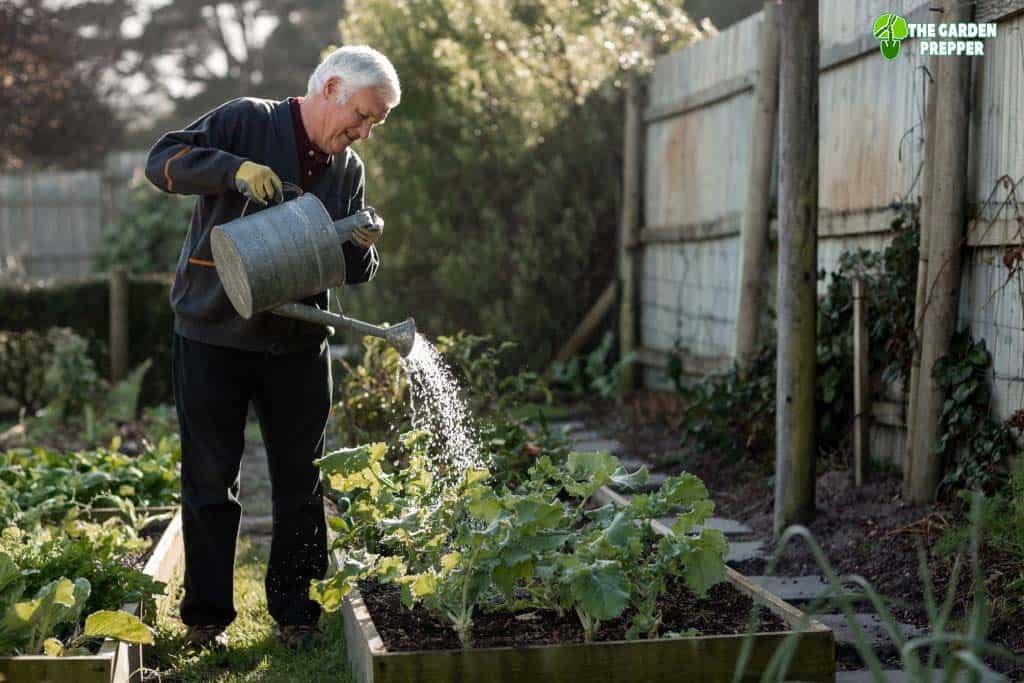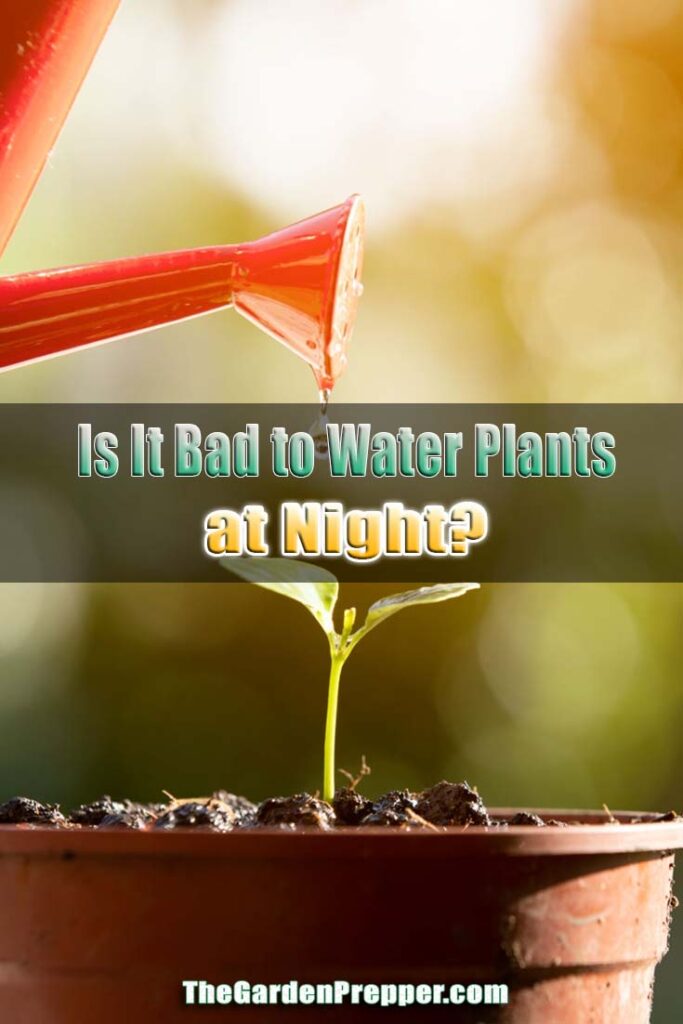For those who have gardens but a very busy schedule during the daytime, your time to garden is limited to evening to nighttime hours. One particular chore that needs to be done regularly and consistently is watering the plants, with certain varieties requiring daily waterings for better growth. Because of this, it may have you wonder: Is it bad to water plants at night?
You’re probably told that it’s fine to water plants at night, while others have recommended against it. What’s the real answer? Read on to find out!

Is It Bad to Water Plants at Night?
While there would be less evaporation at night, it is NOT recommended to water your garden at night, as it would cause serious harm to your plants. Here are the things that may negatively affect your plants:
1. Wet Foliage
When you water your plants from above using a sprinkler system or watering can, it will cause your foliage, flowers, and fruits to become wet. When you water during the day, the sun would readily evaporate the moisture. However, at night, the water will stay on the plant for a longer time.
What happens when the water stays?
This would make the perfect haven for fungi and bacteria, which would replicate and invade your plants’ surfaces. For plants who already suffer from other diseases and issues, such as damaged stems, the pathogens would gain an even stronger foothold in the garden, causing dieback.
2. Plant Activity
Just like human respiration, plants would exchange gases and moisture with surrounding air via transpiration. Transpiration is a process where tiny holes, known as somata, would open and close, releasing water vapor.
Most transpiration activity would occur throughout the day when the sun shines. Any watering moisture on plants during the night won’t be able to be expelled by the plant’s stomata. This results in moisture remaining on the plant for pathogen infiltration, which causes rot and/or more damaging injuries to the plant’s flowers and foliage.
This especially goes for evenings with calm winds, as this contributes to pathogen reproduction. The windy nights would help plants evaporate standing water or knocking moisture to the ground.
3. Waterlogging
If you have soil that lacks ideal friable texture, then watering at night would contribute to waterlogging. The loose soil would provide space for water to penetrate the ground uniformly and consistently. However, if you have compacted soil, this prevents water from moving gradually to the topsoil.
Because of this, water will remain standing on the soil surface. If you water at night, there won’t be sun to evaporate the puddle, so the plants’ roots will be suffocated from the reduced air and moisture. The plants’ stems and crowns would also be harmed by pathogens or rot if water concentrates on the plants’ bases.
4. Frozen Water
Watering at night is very harmful during the winter, as nighttime watering can create an artificial frost across your garden. For instance, the standing water on foliage doesn’t have a chance to evaporate come nighttime. When the temperatures drop, water will frost over and would harm frost-tender plants.
During colder months, it’s vital to water the plants in the morning or early afternoon, making sure that moisture will move to the soil properly before nighttime comes.
The Best Time to Water Your Plants
You should never water your plants at night, so when is the best time to do so?
It is in the early morning, while the temperatures are still cool. This allows water to run down to the soil, reaching the plants’ roots without excess water lost from evaporation. Furthermore, it makes water available to plants throughout the day, so plants can handle the heat of the sun better.
If you have heard about the myth that watering in the morning increases the risk of plant scorch, this isn’t true! Almost, if not no, areas would receive intense enough sun for water to scorch plants. Also, even when you live in areas with intense sunlight, the water droplets would evaporate from the heat before they can focus the light.

How about in the early or late afternoon? Yes, this is still okay, and the second-best choice. When watering vegetables in the late afternoon, most of the heat from the day has passed but there would be enough sun left to dry your plants a bit before nighttime. When watering the plants during the late afternoon or early evening, it cuts evaporation, allowing plants a few hours without sun to absorb water into their systems.
However, be wary when watering in the late afternoon, ensuring that the leaves have time to dry before nighttime. Damp leaves throughout the night would encourage fungus problems like sooty mold or powdery mildew, which harms vegetable plants.
For those who use drop or soaker irrigation systems, water your plants up until night, since the leaves of your plants won’t get wet from this watering method.
Wrapping It Up
When watering your plants, it isn’t just about how much you water them. Even the time you water them matters, which is why you have to schedule it right! Avoid watering your plants at night and focus on watering them during the early morning or afternoon to reduce the risks of disease and fungus from night watering.
